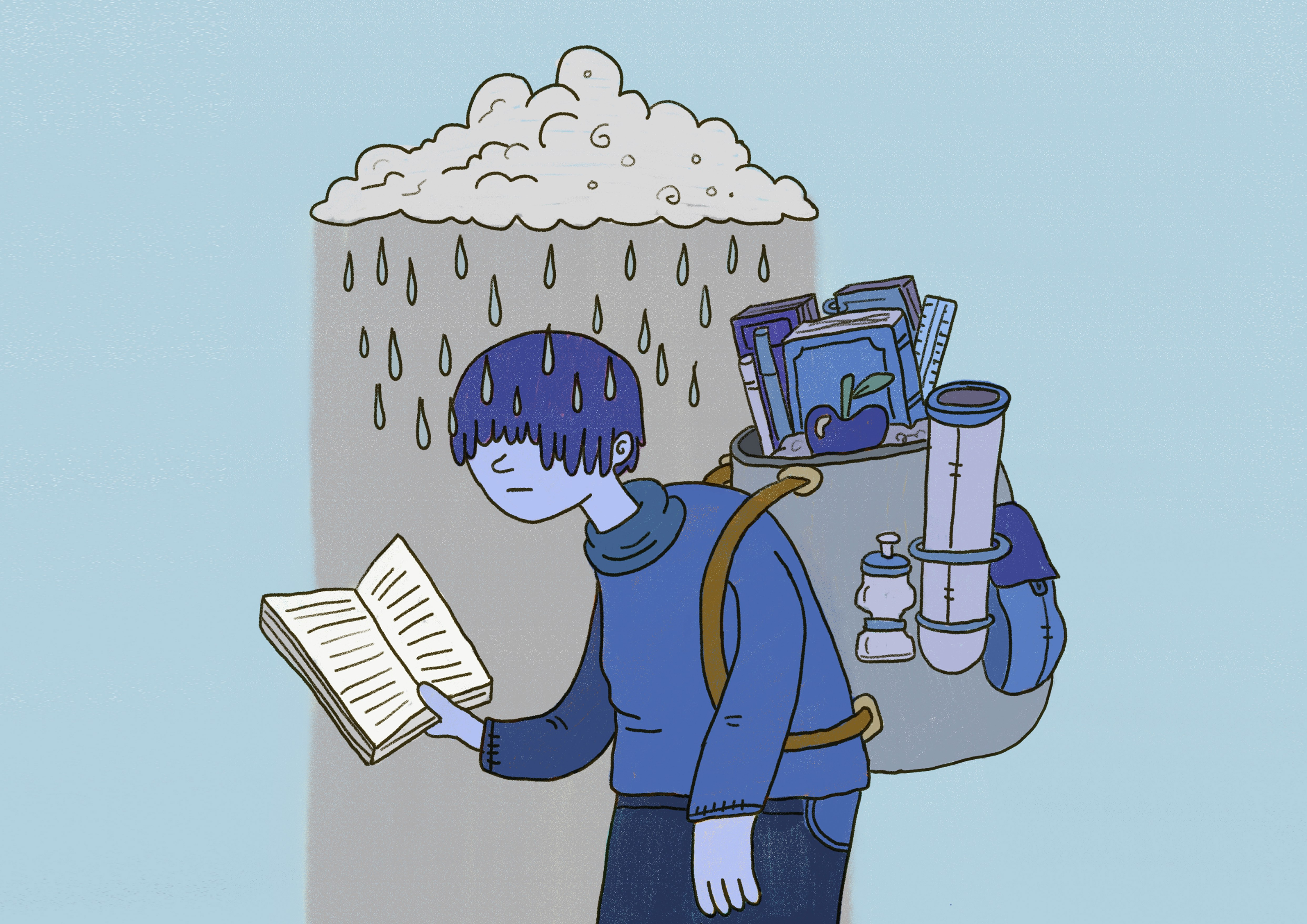Poor mental health has become a kind of epidemic among college students, and depression has been sweeping through universities everywhere. Adolescents are already especially prone to mental illness because of the turbulence of the growing process, and the stressors of college tend to exacerbate that predisposition. Plus, with final exams approaching, depression can make the normal routine of studying, writing papers and working on presentations considerably more difficult than usual.
As someone who struggles with clinical depression, I don’t think that the symptoms are discussed as freely as they should be. Personally, I had a hard time distinguishing my own depressive episodes from bouts of laziness or lack of a good work ethic. It first started in high school when I had way too much on my plate: standardized tests, too many classes, school sports, relationship issues — you name it.
I started comparing myself to my peers, feeling worthless and before I knew it, my grades were dropping and I started neglecting my personal responsibilities. My room became a mess, I didn’t even have the energy to shower and my sleep schedule teetered between zero and 15 hours a night.
I wish I had gotten help sooner, but I’m so glad that I did. However, the sheer volume of people seeking counseling has made psychological services more difficult to access. Over the past two decades, there has been an alarming upward trend on college campuses; more students are reporting serious mental issues and seeking counseling.
A 2010 survey found that severe psychological problems in counseling centers had increased by 16 percent since 2000. In the past few years, the rate has gotten even higher, heavily impacting college campus counseling centers. According to the American Psychological Organization (APA), 76.6 percent of college counseling directors reported that they had to limit visits for non-crisis patients to make room for the increasing number of clients.
This uptick in college students with depression isn’t something that came out of the blue. Many psychologists and sociologists have attempted to pinpoint the cause of it, and each study has its own angle.
The book “Lost In Transition: The Dark Side of Emerging Adulthood,” published in 2011, blames the hardships of today’s college-age adults on specific societal trends. One of these trends is the drastic growth of higher education and increased competitiveness in college admissions. Another is the influence of mass-communication technology such as social media and advertising. Other topics include substance abuse, sexual freedom, economic instability and consumerism. One of the general themes, though, is that young adults lack direction and moral coherency, and that they are more likely to be disengaged from the world around them.
Still, the theory that adolescents and college students don’t have direction or engagement is up for debate. Young adults today seem to be more politically active than ever, many of them participating in protests and marches for causes close to their hearts. In addition, the increasingly competitive atmosphere of the university and job market has forced students to find their passion at an earlier age.
Then why are young adults with mental issues still slipping through the cracks? During a post-9/11 era of mass shootings, a border wall and a slew of other crises, it’s no surprise that much of the adolescent population has adopted an almost nihilistic attitude. And the competition for college admission and jobs to pay off student debt is so high nowadays that it’s become one of the main stressors for students.
One of the main causes for depressive symptoms, according to a study on first-year college students, is a lack of personal goals. Personally, I believe that the absence of goals doesn’t come from laziness or being over-privileged, but rather from societal pressures. The pressure to find your direction in this era of higher education has led many students to feel lost, not because they aren’t motivated, but because they feel too rushed.
Another massive contributor to depression in college students is the presence of social media; this wouldn’t be an article about mental illness if it didn’t mention the Internet. Sites like Facebook, Twitter, Instagram and YouTube have allowed individuals to live a double life — one that’s completely ordinary and one that they deem worthy to show to their followers. In almost every case, the two lives don’t intersect. When people compare their normal, everyday selves to someone’s social media persona, their self-esteem tends to drop. Insecurities about lifestyle, their body, financial status and more begin to arise.
The overwhelming stress of starting at a new institution, trying to have a balanced academic and social life, as well as dealing with residual emotional issues stemming from family, relationships or personal trauma, can all be triggers for depression.
Gender and sexuality were also shown to significantly impact mental health. The specific challenges that female adolescents face, such as gender roles and expectations, have led to more depressive symptoms among female youth. In addition, students who indicated that they were attracted to members of the same sex or both sexes reported higher levels of depressive symptoms, perhaps related to a lack of a family support system, discrimination, bullying or general insecurity. No matter where it comes from, depression in college is a massive hurdle for many students.

















spoiled to shit!!